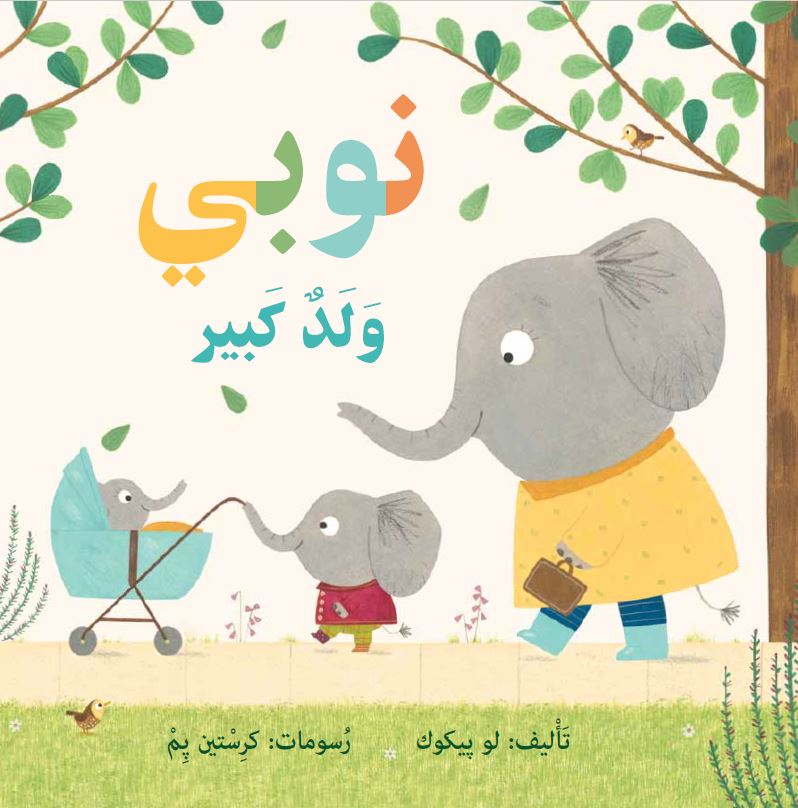
Nouby has become a “big” boy, certainly older than his little sister, but some things are still difficult for him. This is a story about a child’s journey towards independence and the challenges that accompany it, especially the presence of a younger brother/sister who shares the child’s parental interest.



